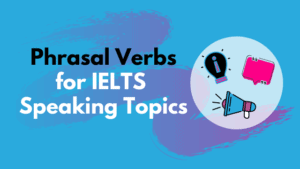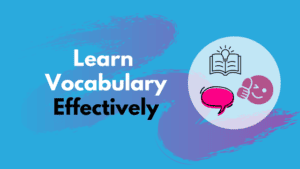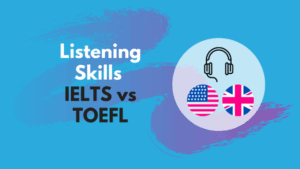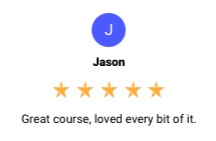Advanced Vocabulary for IELTS Speaking
👇 Take this lesson with you! 👇
Do you really need lots of advanced vocabulary for IELTS Speaking? Many students get confused about this and use inappropriate vocabulary in the test, and so get a low score in the test. The truth is you do need to show a ‘wide range of vocabulary’ in order to get a high score.
However, many students try to squeeze lots of complex words into every sentence. This makes them sound unnatural and it also means they are likely to make more mistakes, which will lower their score.
You need to balance simple and complex vocabulary.
You should try to sound as natural as possible. Most importantly, if you don’t know how to use a new word really well, don’t use it in the test.
That said, let’s move on and show you 10 words that, when you learn them well and feel confident to use them, can help you get a higher score in the IELTS Speaking test
Table of Contents
Exacerbate
Exacerbate (v.) = to make something worse
Collocations: problem, situation, impact, effect
The problem of climate change is exacerbated by people flying too much and creating carbon emissions
Mitigate
Mitigate (v.) = make less severe, less unpleasant
Collocations: problem, impact, effect, suffering
We could mitigate the impact of climate change by flying less
Unsurmountable
Unsurmountable (adj.) = Impossible to solve
Collocations: problem, challenge, barrier
Although climate change is a challenging problem, it’s not unsurmountable, we can solve it.

An Uphill Struggle
An uphill struggle = Difficult / challenging but possible
To talk about: task, project, game
Writing my new book has been an uphill struggle, so I will be thrilled when it’s finished.
Apprehensive
Apprehensive (adj.) = worried, nervous (about a bad result)
Collocations: Apprehensive about…
Initially, I was really apprehensive about doing my driving test, but in the end, it turned out really well.
Disgruntled
Disgruntled (ad.) = unhappy and disappointed / dissatisfied
The customer service in the shop was terrible and I felt rather disgruntled
Bewildered
Bewildered (ad.) = confused
Collocations: thoroughly, utterly,
Bewildered by ____
I was utterly bewildered by my friend’s decision to quit his high paid job
To Do My Utmost
To do my utmost = To try my best
The government have produced a good economic plan, and I am sure they will do their utmost to implement it.
Inept
Inept (adj.) = Not good at your job, showing a lack of skill
Collocations: very, rather, totally, politically, socially,
Inept at….
My boss likes to design his own PowerPoints, but between you and me, he is rather inept at it.
Impeccable
Impeccable (adj.) = Perfect, without fault
Collocations: job, behaviour, manners, English
My friend has lived in America and she speaks impeccable English
What other advanced vocabulary have you learnt recently?
Share your words in the comments below.
Improve your Speaking Skills with this Free Course
Crack IELTS Speaking Part 1
Learn to Speak with Confidence in Part 1 of Your IELTS Test!
⭐️⭐️⭐️⭐️⭐️
‘It’s such a great course. I’ve learned so many usages for speaking part 1.’
Zu Htet






6 thoughts on “Advanced Vocabulary for IELTS Speaking”
Hello mates, how is all, and what you wish for to say about this piece of writing, in my view its actually remarkable in support of me.
knowledgable vocabulary. Please add more.
The words Were incredibly informative.
Pleased to hear that!
Pingback: Useful Idioms for IELTS Speaking - Keith Speaking Academy
Pingback: Advanced Vocabulary for IELTS Speaking - Powerful phrases!